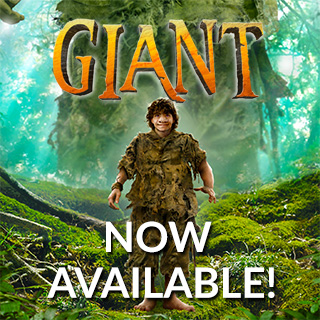Heroes, Not Celebrities
Then she added, even as she wrapped her skinny little arms around my neck and squeezed me tight, “Right after Britney.”
I cringed. Britney Spears is her hero? Her favorite singer, maybe. Or possibly her favorite bare midriff. But her hero?
When it comes to knowing the difference between a hero and a celebrity, our society is confused. Massively, profoundly confused.
My niece, you see, is no isolated case. A new national survey of American teenagers reveals the startling truth: Only half the kids questioned have a hero at all.
That means there is nobody—nobody—in the lives of those young people who has made enough of an impression on their hearts and minds to be called a hero.
It gets worse. Of the kids who responded that they do have a well-known hero, more than three quarters chose a movie star, musician, or athlete. On top of that, almost no women were named.
And more than twice as many kids cited as their heroes Spiderman or Superman than cited Abraham Lincoln, Gandhi, Mother Teresa, or Martin Luther King, Jr.
What in the world is going on here?
Somewhere along the way, we have lost track of the key distinction between celebrity and heroism. In our media-obsessed culture, we spend far more time discussing the latest celebrity scandal than the crucial values and events that shape our society.
For example, Janet Jackson’s Super Bowl episode received more than three times as many Internet searches than the 2000 Presidential election, which significantly affected our nation’s policies at home and abroad. Whether you care more about education, terrorism, federal deficits, or the environment we will leave to our children—surely those issues are more important than Ms. Jackson’s bad behavior.
All of which leads back to the difference between a celebrity and a hero. While celebrity just means fame—someone whose name, face, or singing voice is widely recognized—heroism means something more. Something that represents the best of who we are as a people.
But what is that? And how do I explain it to my little niece?
For starters, a hero is not about fame. Or money. Or Grammy awards. A hero is about just one thing, and that’s character. That’s right—qualities such as courage, compassion, hope, perseverance, humility, and faith. Qualities with deep value and lasting importance.
So I sat down with my niece and asked her who in her life had shown her how to be brave. Or to try just that little bit harder. Or to never give up.
Know what? She answered Mom. And Dad. And her kindergarten teacher.
Those people, I explained, are real live heroes. Not just fleeting images on the television screen. Her parents and teachers are people who have made an honest-to-goodness difference in her life. People she will never, ever forget.
“Now,” I suggested, “let’s talk about some heroes who are better known. People we might never meet, but who can really brighten our days.”
“Like who?” she asked.
“Like Wilma Rudolph. Did you know that she triumphed over childhood polio, poverty, and racism to become the fastest woman sprinter in the world? Or Jane Goodall, who dreamed when she was your age that someday she’d go to Africa. And now she’s doing incredible work to save wild animals in Africa—and the rest of the world.”
She leaned forward. “Who else?”
“Well, there’s Abe Lincoln, who had the wisdom and grace to put the nation’s good above his own. Or John Muir, who loved to walk in the woods so much that he founded the Sierra Club to protect forests everywhere. Or Anne Frank, a brave girl who showed such courage in the Holocaust that her diary has inspired millions of people.”
“Wow,” she said. “Those are all real people?”
I nodded. “Just as real as Mom, Dad, and your favorite teacher.”
And then my little niece did something extraordinary. She cocked her head to the side, and said, “Maybe someday I can be a hero, too.”
“You bet,” I replied, giving her a hug. For she had just discovered the most important point of all: That she didn’t need a famous face or voice to be a hero. That real heroes are defined by what’s down inside.
And one thing more. In that remarkable moment, she had realized that every single one of us— regardless of gender, race, age, or anything else—can find great qualities in ourselves. Can make a difference with our lives.
And, yes. Can be a hero.

